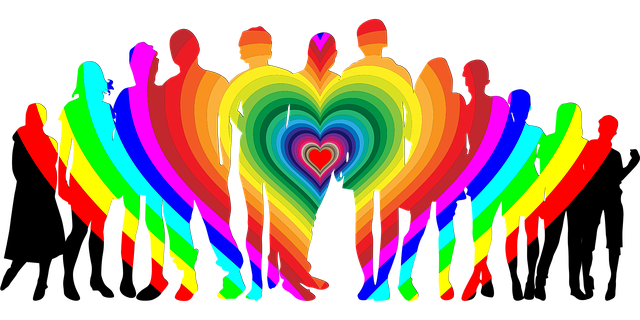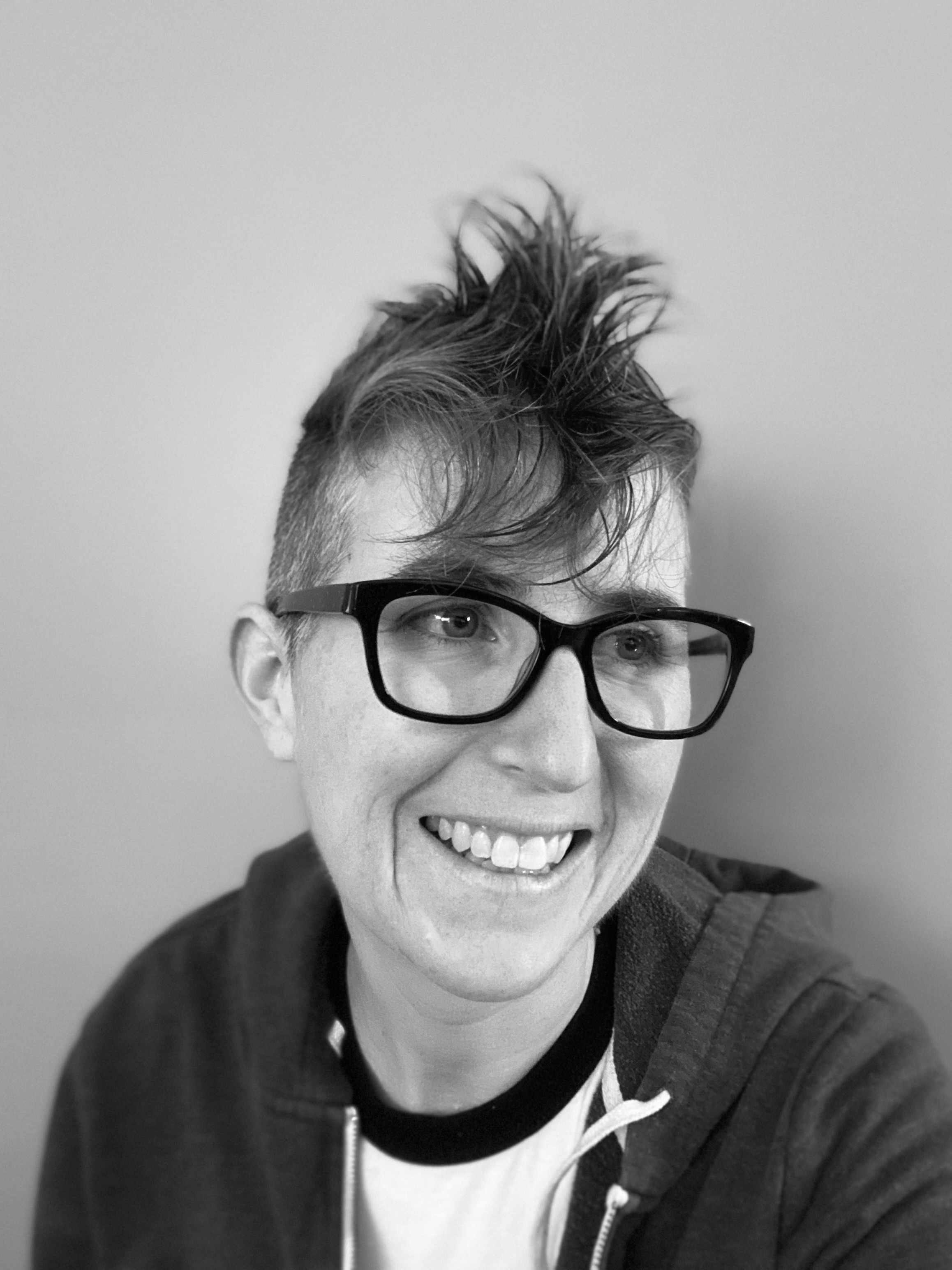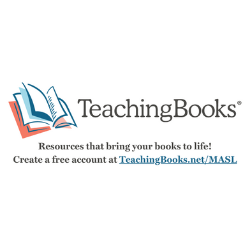
Reading (and writing) the Rainbow
by Danielle DuPuis
As library media specialists, we’re constantly updating our roles to meet the needs of our students, staff, and school community. Make videos to promote books? Sure. Teach a class about accessing resources? No problem. Tech help and instruction? Got it.
I could continue listing job responsibilities to fill this entire page and there still wouldn’t be enough room. Instead of “other duties as assigned” that last line on our job description should in fact be the first and should read, “other duties as invented.” Why? Because necessity is the mother of invention, and to be essential, we must be necessary.
On one hand, some folx may argue that to be essential, is to be useful. In that case, I would argue that an autonomous robotic vacuum is useful for cleaning the floor. But a broom and dustpan can accomplish the same thing at a fraction of the cost. Why am I talking about cleaning supplies and why does it matter? Because, as library media specialists are siphoned out to complete other jobs around the school such as lunch and recess monitors, test administrators, or tech repair, while all useful tasks, these are in fact creating a pathway toward our extinction. How can we justify the need for a media specialist who has a specialized degree, experience, and extensive knowledge about books and resources, and can educate others about information literacy and critical thinking, if we as a collective group are doing less of this type of work in order to complete tasks that take us away from our mission? These are questions I asked myself as I tried to see a little into the uncertain future of our profession.
As my own district made cuts by removing media paraeducators from high school media centers, high school media specialists were left wondering how we could make our programs work as they previously had, but without the additional help. The disappointing reality is… that we couldn’t. There wasn’t a way to continue offering the same types of services while also being tethered to the library information desk all day to monitor students, troubleshoot technology, and assist any students, teachers, or parents who entered looking for help. When we had a media secretary, my counterpart and I could easily walk away from the desk to teach classes, assist teachers and students in their classrooms, or offer program extensions like book buddies, NaNoWriMo, cultural proficiency training, etc. Without the extra assistance from our media paraeducator, the two of us were left trading off our time on the desk (or cover all time on the desk alone if one of us was out sick or at a professional learning session), and limiting the services we could offer during school hours.
This left us brainstorming ways that we could continue to be an essential part of our school communities while also at least attempting to offer a high level of services and support with 33% less staff. While we’ve always tried to be innovative with our programs such as book clubs and Maker Monday Crafternoons, the pandemic really forced us to re-think our face to face programming. What transpired was a big push to virtual learning and information sharing through weekly email updates, tech help videos, and a couple of library initiated programs that have increased to a larger scale - Rainbow Vision Literary Magazine and the Read the Rainbow book club. Both programs bring visibility to the LGBTQ+ community as well as provide a safe space for queer students and allies to exist together.
The first of these was the Rainbow Vision Literary Magazine, which started as The Vision and included artistic and literary works from students at my high school. Rainbow Vision expanded on this idea, but instead of generalized work, requested that the submissions have some tie to LGBTQ+ issues, topics, or the community. And instead of offering this to just our high school, it was opened to all high school students in Howard County, and in its second year, open to all middle and high school students. Media specialists, English, Art, and GT teachers all helped promote the magazine in their schools. The results were lovely. We published 30 of the entries we received in 2020, 38 in 2021, and 53 in our third volume this past May. The educators who have read the magazine have shared that it has given them a better understanding of their LGBTQ+ students, and the students are always eager to read each issue. To kick off our first HCPSS Pride Week this past June, we held a Rainbow Vision Reception at Bus Boys & Poets and invited our student artists and authors to attend the event. It was a packed house and we loved hearing the students read their own work aloud as it gave even more meaning to their work. The magazine is not only authored and illustrated by student creatives in our county, but it is also edited as well as compiled by high school students in the Intern/Mentor GT program.
One thing that seems to continue to provide comfort to LGBTQ+ students in particular is the ability and opportunity to take part in programs through a virtual platform. Our media center provides a safe haven for many of our LGBTQ+ students who come in before and after school, during their lunch period - to avoid the cafeteria commotion, or any other time their teachers write them a pass to visit. While we did offer a book club after school, less and less students were attending after we returned from the pandemic. The solution? An evening virtual book club called Read the Rainbow, accessible through GoogleMeet where students receive a free copy of the book mailed to their home ahead of time (thanks to funding procured by our community partnership with CARY) and the author attends to talk with the students and answer their questions. While about 85% of the attendees are students, parents, and educators from Howard County, about 15% of attendees are folx from outside the county, state, and even country. We are now averaging around 90 registrations per club meeting.
This larger-scale programming allows for not only visibility for our LGBTQ+ community, but also allows for greater visibility and value for our library media program. If we can continue to branch out to offer essential programming that reaches a large volume of students and community members, which can have a systemwide impact, this makes us essential. Necessity is driving us to reinvent our jobs so that we can continue to be essential members of our community. Shouldn’t it only make sense that we also be at the wheel, deciding where we will go next?

Danielle DuPuis (she/her) is a library media specialist and video production teacher at Hammond High School. A good portion of her work revolves around meeting the needs of students and teachers through technology, resources, and books. She enjoys collaborating, learning new things, and finding ways to bring visibility and acceptance for the LGBTQ+ community through her daily work.
As a creative, Danielle has co-authored 4 professional resource books for educators and has dreams of becoming a published young adult fiction author.
Danielle and her family live in the Baltimore area and enjoy taking hikes and exploring new adventures together. Her free time is spent reading, writing, querying, and enjoying the company of friends.












